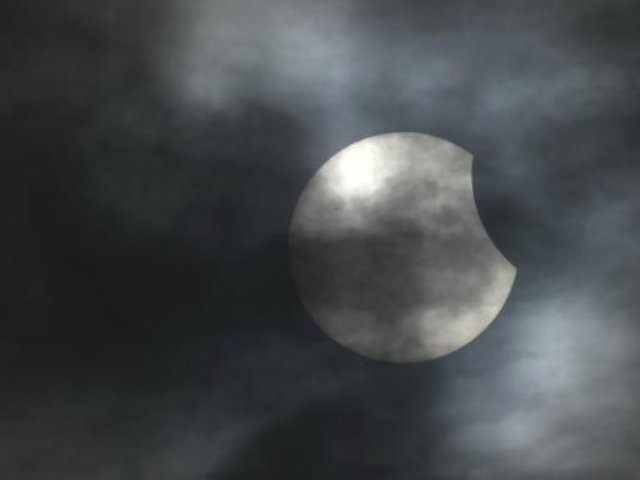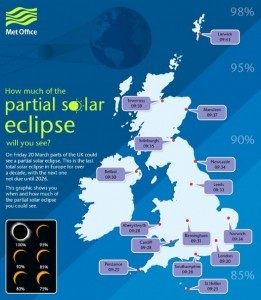The solar eclipse promised to be a spectacular cosmic light show of the kind rarely seen, but for most of Britain the event was a damp squib, thanks to March’s characteristic cloud cover. For some amongst the millions of Britons who downed tools and looked up, perseverance paid off and they were able to glimpse the gleaming crescent sun through gaps in the clouds.
Skies across Britain began to darken at 8.24 this morning as the moon edged between our star and Earth, reaching peak coverage at 9.31 am in London. An hour later it was all over. In London and the South East 85 percent of the sun was obscured, yet the meagre portion left exposed, hiding behind dense cloud, was bright enough in itself to give the impression of merely a gloomy day.
One political joker quipped “Danny Alexander assures me there will be a separate and better Liberal Democrat solar eclipse tomorrow.”
Elsewhere, spectators had more luck. Those who flocked to Stonehenge were rewarded with a good view, as were those in Cornwall, who have particularly good luck when it comes to eclipses – Cornwall was the only part of Britain to enjoy a full eclipse the last time one took place over the British Isles, in 1999, and will be the only region to witness the same spectacle again in 2090 when the sun will be completely obscured there for two minutes and ten seconds.
Today’s full eclipse mostly took place over the Northern Atlantic ocean, only making landfall in the Faroe Islands and Svalbard, an island belonging to Norway, both destinations to which eclipse hunters flocked.
Their efforts were rewarded by mostly favourable weather, allowing the full majesty of the phenomena to be witnessed. Light cloud cover meant that the sun could occasionally be viewed directly. The Islanders’ Viking descendants thought that eclipses occurred when a wolf swallowed the sun, but modern viewers came forearmed with scientific understanding and cardboard tubes capped with paper, through which the eclipse could more reliably be viewed safely.


COMMENTS
Please let us know if you're having issues with commenting.